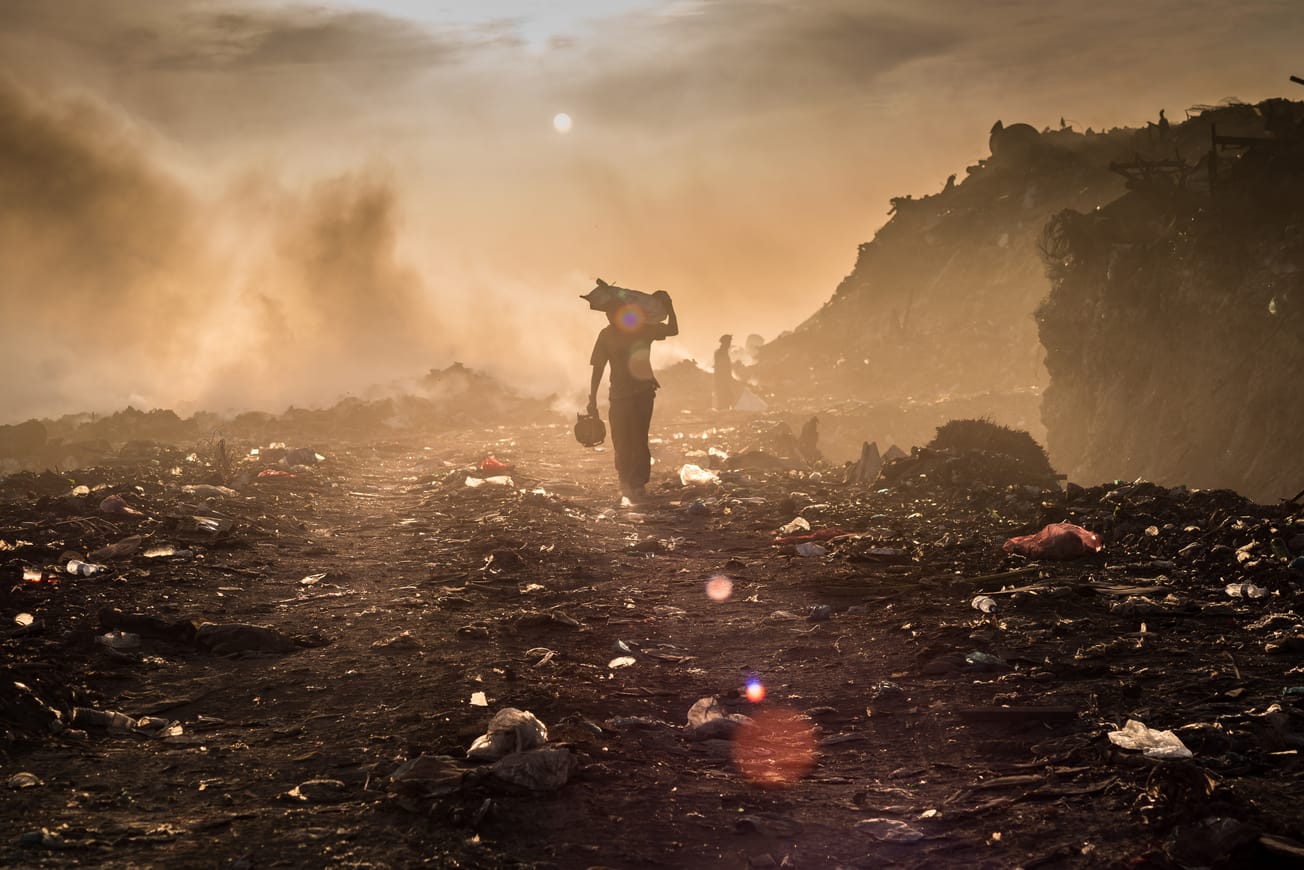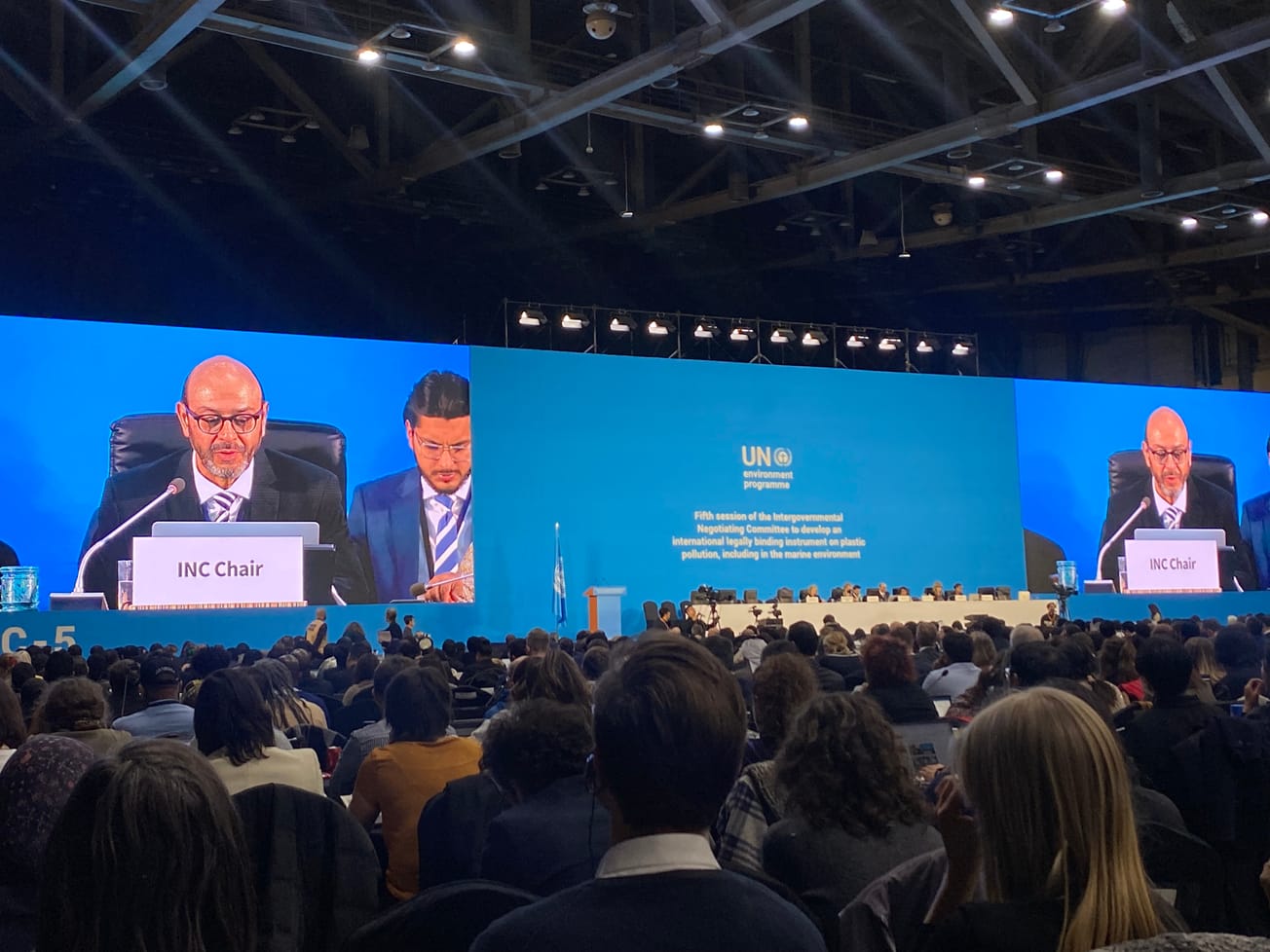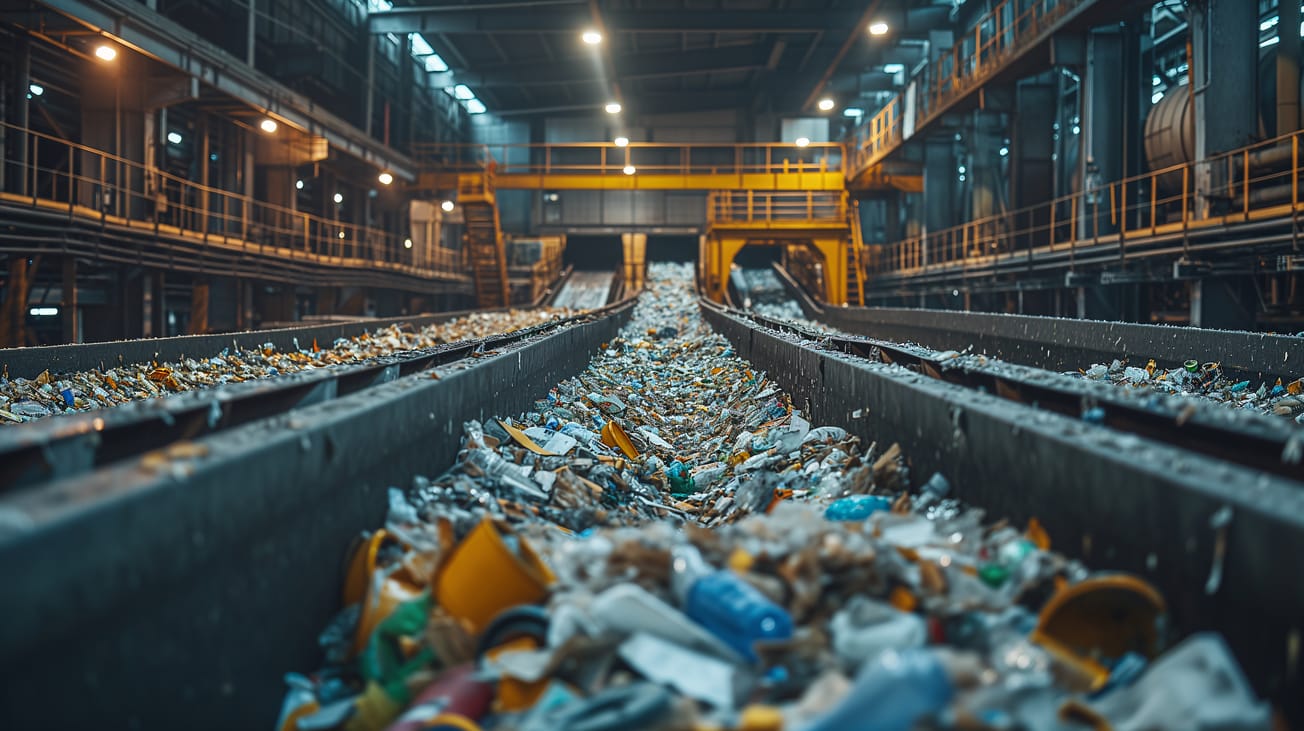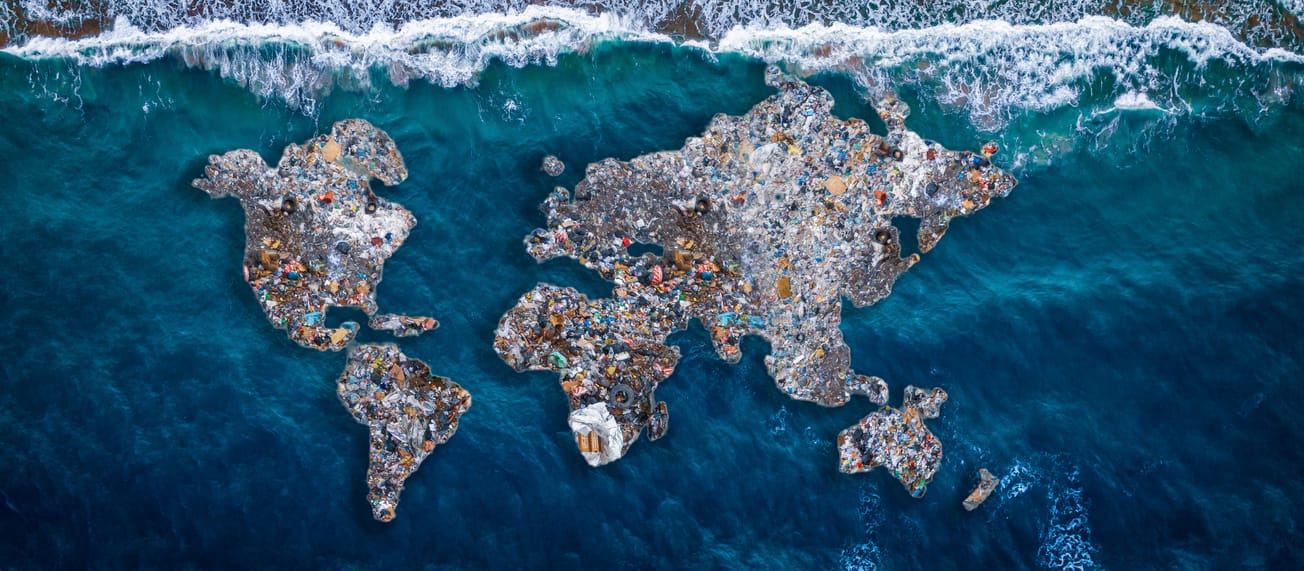Author: Randika Jayasinghe
As negotiators gather for the final negotiating session to develop a legally binding instrument on plastic pollution (INC-5), one of the critical elements under discussion is ensuring a just transition. While the current bracketed compilation text contains multiple options for addressing this challenge, we must ensure that any final agreement properly recognizes and supports waste workers, particularly women and those in the informal sector.
The hidden heroes of resource recovery
In many developing countries, informal waste workers form the backbone of recycling and waste management systems. These workers - who include waste collectors, sorters, processors and small-scale recyclers - provide essential environmental services while creating livelihoods for some of the most marginalized communities. In Sri Lanka, for example, informal waste workers not only reduce the burden on municipal waste systems but also supply raw materials to manufacturing industries and create affordable recycled products for local markets.
Yet despite their crucial contributions, informal waste workers remain largely invisible in policy discussions and face significant marginalization. They work in hazardous conditions without proper safety equipment, earn irregular incomes, and face social stigma due to their association with waste. Women waste workers, who make up a significant portion of this workforce, often face additional discrimination and safety risks.
The provisions in the compilation text
The provisions for a just transition included in the draft treaty text (compilation text) contain several important elements relevant to waste workers, including:
- Recognition of waste pickers and workers in informal settings
- Provisions for improving working conditions and occupational safety
- Integration of informal workers into waste management systems
- Requirements for Extended Producer Responsibility (EPR) schemes to support waste sector workers
- Support for women waste workers and other vulnerable groups
However, the text remains in brackets, indicating lack of consensus. Some of the most important provisions supporting informal workers appear as optional elements that could be removed as negotiations progress.
The most recent document released by the INC Chair (Chair’s non-paper 3) recognises the significant contribution of workers in the informal sector to sort and recycle plastics, however stronger language is needed to ensure a just transition for this sector.
Waste Workers in Just Transition
Up to 20 million people worldwide work in the informal waste sector, a significant portion being women, children, elderly, and people with disabilities who often represent the poorest of the poor. According to the Breaking the Plastic Wave report (2023)2, these workers collected 27 million metric tonnes of plastic waste in 2016 - approximately 59% of all plastic collected globally for recycling - preventing it from entering landfills or oceans.
Their role is therefore critical: the success of any global agreement on plastics will ultimately depend on these people who handle materials on the ground. If we do not address their needs and rights in the Global Plastics treaty, we risk further marginalizing already vulnerable communities.
Waste pickers must be included in the planning of the just transition to ensure:
- Existing Expertise: Informal waste workers possess practical knowledge about recycling systems and material flows. Their insights are invaluable for designing effective plastic waste management solutions.
- Scale of Impact: Millions of families worldwide depend on waste work for survival. The Treaty must protect and enhance their livelihoods rather than threaten them.
- Women's Empowerment: Many women support entire households through waste work. The Treaty can advance gender equity by improving their working conditions and economic opportunities.
- Environmental Effectiveness: Informal waste workers often achieve higher recycling rates than formal systems in developing countries. Their role is vital for achieving the Treaty's goals.
Essential Elements for a Just Transition
Based on experiences from countries with active informal sectors, several elements are crucial for ensuring a truly just transition for waste workers:
- Recognition and Rights: Formal recognition of waste workers' rights, including their right to access materials and operate in public spaces.
- Valuing their Autonomy: Rather than forcing formalization, allowing waste workers to maintain their independence while improving their working conditions.
- Gender-Responsive Support: Specific provisions addressing the needs of women waste workers, including safety measures and equal economic opportunities.
- Knowledge Integration: Creating meaningful platforms for waste workers to contribute their expertise to policy decisions.
- Economic Security: Ensuring that Extended Producer Responsibility and other schemes provide direct benefits to waste workers.
The Path Forward
The success of the global plastics treaty will depend significantly on the millions of waste workers who handle materials on the ground. Their rights, knowledge, and livelihoods must be at the center of just transition planning - not an afterthought.
A critical challenge is the data gap - many countries lack basic information about their informal waste sector workforce, including their numbers, collection volumes, and economic contributions. This invisibility reinforces long-standing inequities and blocks effective evidence-based policymaking. The treaty's transparency framework must mandate collection and reporting of this data. Only through meaningful recognition, support, and empowerment of waste workers can we achieve the dual goals of environmental justice and social equity in our global response to plastic pollution.
The global plastics treaty must embed just transition principles throughout its core provisions, particularly in articles addressing rights protection, capacity building, and national reporting frameworks. Meaningful implementation requires national reporting on informal sector workers, indicators for tracking their contributions, and integration of waste worker data into National Action Plans. The treaty's financial mechanism must ensure these initiatives are adequately resourced.
As negotiators finalize the treaty text, they must understand that a truly just transition extends beyond technical solutions. Behind every piece of recycled plastic is a person whose work makes recovery possible. These waste workers - who have long operated in the shadows of our waste management systems - possess the knowledge, experience, and networks needed to tackle plastic crisis in many countries. The treaty must establish clear mechanisms for technical training, cooperative development, and financial inclusion to support their transition to improved working conditions while maintaining their essential role in the circular economy.
This presents an unprecedented opportunity to transform how we address plastic pollution - not just through policies and targets, but by making the invisible visible and ensuring a just transition that begins with listening to their voices, protecting their rights, and valuing their expertise.







